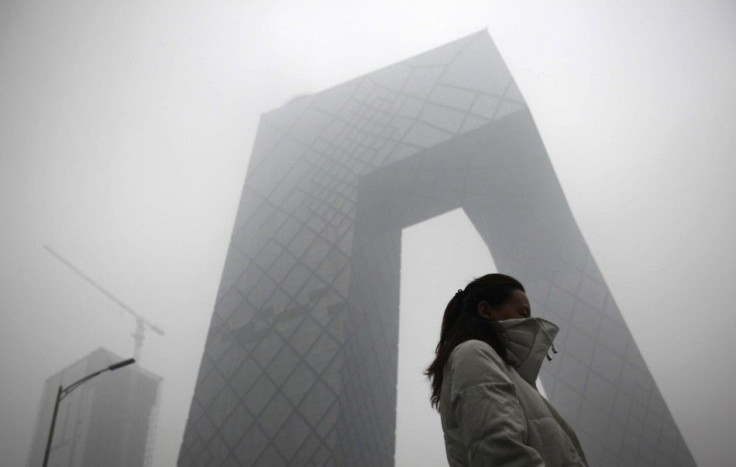‘Fog’ (Smog) Cancels Hundreds of Flights in Beijing

Beijing's Capital International Airport was forced to cancel hundreds of flights on Monday due to heavy smog and poor weather conditions.
The dense smog reduced visibility across the Chinese capital, causing problems both on the ground and in the air.
The polluted air closed motorways linking Beijing with the north as conditions made driving dangerous. The smog was reportedly so dark that many drivers kept their headlights on throughout the day.
Thick smog at Beijing airport, the world's second busiest, stranded thousands of passengers as roughly 500 flights were cancelled by Monday evening.
Visibility at the airport was as low as 980 feet, according to Xinhua.
Meteorologists say poor weather could continue until Wednesday causing even more transport disruptions.
Forecasters predict winds from a cold front moving into central and east China Tuesday will blow the fog away, China Daily reported Monday.
Beijing is considered one of the most polluted cities in the world by international organizations like the UN. The excessive air pollution comes from both vehicle emissions and the burning of fossil fuels, particularly coal.
Much of the city's high energy consumption is fueled by coal-fired power stations.
Readings at the U.S. Embassy, which measured inhalable particles of 2.5 microns, call the pollution levels hazardous. On Sunday night, the embassy's index topped its ceiling of 500. By Monday, it was around 356, a reading that is still considered dangerous.
By contrast, there were no readings from the Beijing Environmental Protection Bureau's (EPB) own air monitor until mid-afternoon Monday, when it acknowledged slight pollution.
Last month, Du Shaozhong, vice head and spokesman of Beijing's Environmental Protection Bureau, said in an interview on Weibo.com that China's air quality should not be judged from data released by foreign embassies in Beijing, referring to the U.S. embassy's monitoring data.
His remarks came amid suspicions circling around the government's quality reports that consistently rated Beijing's air quality higher than that of data collected by the U.S. embassy.
Monday's incident underscored the heavy cost of Beijing's chronic air pollution - though Chinese authorities are determined to call it by any other name.
Flights out of Beijing Capital International Airport were cancelled to due to fog and Xinhua news agency, the official press agency of the government of the People's Republic of China, described it as heavy fog.
Chinese state media reports warned of traffic gridlock and poor visibility, but made no mention of health concerns.
With 21 of the world's 100 most polluted cities, pollution is a growing concern for China. This year there have been several protests against the growing economic and social cost of pollution- most notably a demonstration in Dalian that attracted more than 10,000 people.
A recent study by the World Bank found that in China, 350,000 people die prematurely from exposure to outdoor air pollution. While China's leaders have described pollution as a threat to growth, little has been done to reverse the trend.
© Copyright IBTimes 2025. All rights reserved.






















